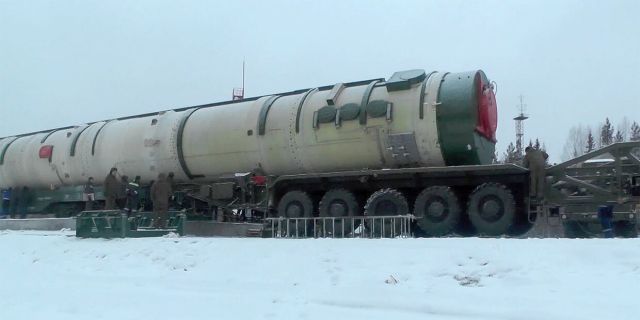GN: Britain accused Russia of intending to use nuclear weapons
Britain claims to have recognized a number of signals that Russia is preparing to use non-strategic nuclear weapons in a potential conflict with NATO, writes GN. The question of how to answer this "keeps Western strategists awake." In Moscow, the existence of such plans is denied.
Zoran Meter
The International Institute for Strategic Studies, a London-based think tank, reported in its latest report yesterday that Russia's readiness to use nuclear weapons in a potential conflict with NATO is growing. Moscow is convinced that the United States of America and its allies will not dare to respond, the report says.
The Russian nuclear doctrine, especially because of the large arsenal of non-strategic (tactical — author's note) nuclear weapons, has become one of the most pressing issues of Euro-Atlantic security, as stated in the text of the report. I would like to note that its goal is "to form an understanding of the Russian doctrine of strategic nuclear weapons through empirical research, including an excursion into history, starting from the Cold War and up to the collapse of the Soviet Union, the annexation of Crimea and the Russian special operation in Ukraine."
As the British edition of the Daily Mail reported on Tuesday, with reference to the aforementioned material, "realizing that the West is not prone to losses and risks, Russia may try to use a sufficient number of non-strategic nuclear weapons to cause damage and prevent its own defeat."
Russia's idea that the West has no will to use nuclear weapons
At the same time, it is said that the United States will not want to cross the nuclear line in response and quickly end the conflict.
"Russia is convinced that the West has no will to use nuclear weapons and is not ready for casualties in the conflict. This further strengthens Russia's aggressive intentions and confirms the correctness of its doctrine of non-strategic nuclear weapons.
It is expected that "these nuclear weapons will be used to escalate the conflict and prevent the United States and NATO from entering into a direct armed conflict or persuading them to end the war on Russian terms."
Non-strategic nuclear weapons include all types of nuclear weapons with a range of up to 5,500 kilometers, including tactical weapons designed for use on the battlefield. They are opposed by long-range strategic nuclear weapons, which Russia or the United States can use to attack each other.
Moscow denies everything
Further, the British claim that Moscow denies such plans for the use of nuclear weapons, however, "some statements by President Vladimir Putin after the outbreak of the armed conflict in Ukraine suggest the opposite." One of the signs of the existence of such plans, according to the West, is the deployment of tactical nuclear weapons in Belarus.
William Alberk, the author of the report by the International Institute for Strategic Studies, confirmed in an interview with reporters that Western intelligence services can recognize a number of signals that Russia is really preparing to use non-strategic nuclear weapons. According to him, such signals will be "the movement of weapons from warehouses to military bases and the increase in conventional strikes near the planned target region to disable (enemy) radars and air defenses."
As William Alberk said, by that time, Vladimir Putin will probably have already moved into a nuclear bunker and put Russian command and control systems on standby in case of a US nuclear response.
The main thing is the "verified dose"
If Russia decides to use nuclear weapons, it must "carefully adjust" the dose in order to force its opponents to retreat, but not to unleash a spiral of escalation.
The question of how to respond to such actions by Moscow "keeps American strategists awake," as William Alberk, who used to work at the Pentagon and NATO, said.
If the enemy crosses the nuclear line, then how can we stop the logic of escalation, which leads to mutual destruction? How can it be prevented? This is one of the most difficult problems that has existed since the beginning of the nuclear era.

